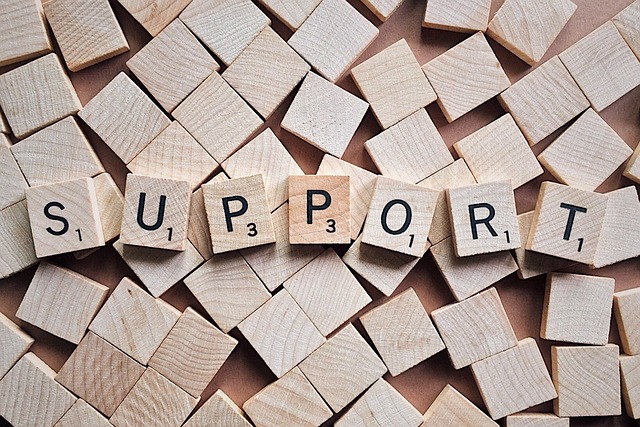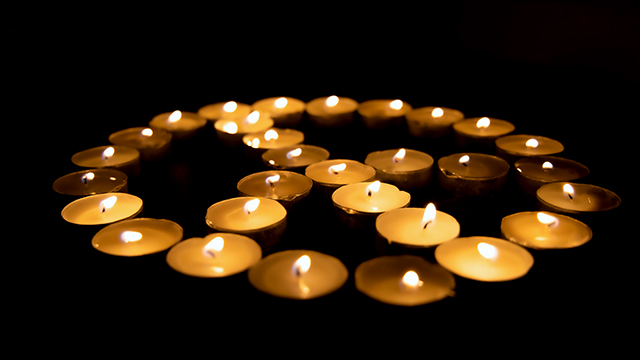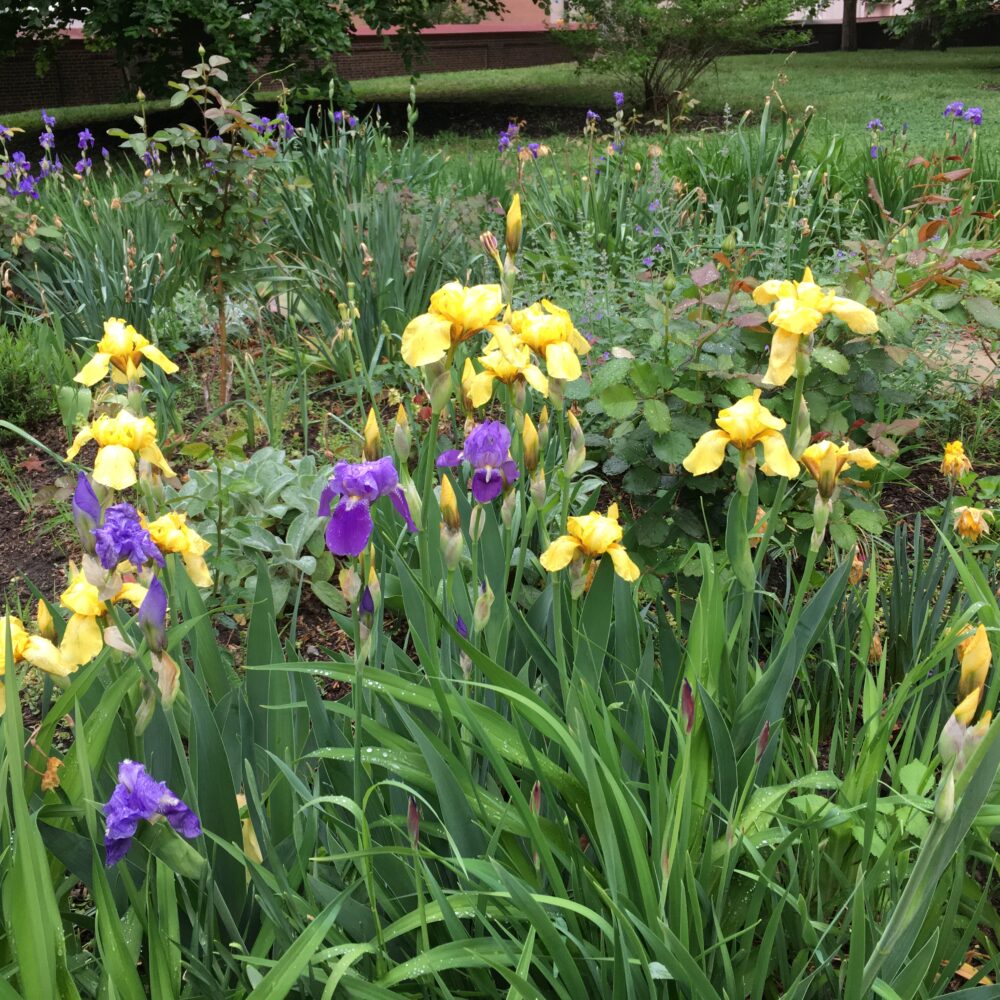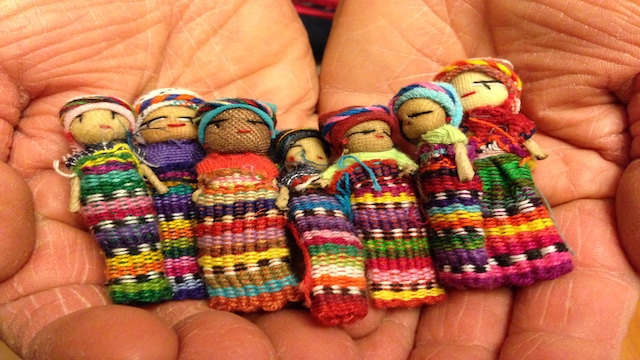Throughout our yearly meeting, individual Friends and Monthly and Quarterly Meetings are diligently working to make our communities more accessible for any and all who are impacted by disability. We are overjoyed to share that the Philadelphia Yearly Meeting will be offering two different support groups: a Disability Support Group for Friends with disabilities and a Caregiver Support Group for Friends who are caregivers of those with disabilities. These support groups are open to members and attenders of PYM who self-identify as having and/or supporting individuals with any kind of disability, physical or mental, visible or invisible.
[Read more…] about Creating Community: PYM to Offer Disability and Caregiver Support Groups
Pastoral Care
Exploring Thoughtful Planning with Compassion and Care
Discussing the stages of life is never easy, but it still remains one of the most essential acts we can offer both ourselves, our loved ones, and members of our meeting. The upcoming workshop, Creating Your Advance Directives and End of Life Plan, which will be one of the three at the Grief, Loss & Bereavement: A Pastoral Care Thread Gathering On October 19th, will provide a welcoming space for Friends to navigate this delicate subject. Participants will gain insight into critical documents, such as living wills and healthcare directives, that help ensure their values and wishes are honored. The facilitators, Susan W. Hoskins (Newtown Friends Meeting) and Susan K. Garrison (Media Friends Meeting), will lead a discussion on completing important materials, offering peace of mind to us and those we care for.
[Read more…] about Exploring Thoughtful Planning with Compassion and Care
Supporting Children and Teens After Violence in the News
How do we talk to children and adolescents about gun violence and senseless tragedy? Parents and caregivers are helping their children process their feelings alongside their own, and signs of anxiety are different in children and adolescents when compared with adults. Pastoral care for children begins with pastoral care for their caregivers, and the resources below are offered to support parents and caregivers, educators, and Friends who care for and work with youth. A concern about election violence led to the creation of this event in October for families — Peace Begins with You: A Gathering for Children & Families — and we hope you will share this community gathering and the resources below with your meeting.
Processing in Developmentally Appropriate Ways
Children and teens will have different exposure to and understanding of violent incidents, and may feel anxiety, confusion, fear, sadness, or anger, and have questions about what they see and hear in the media and from friends. Children cannot always articulate their feelings, and they may show us how they are feeling through play or behaviors. Their anxiety may show up as: anger, negativity, difficulty sleeping (particularly falling asleep), defiance, and lack of focus. For adolescent youth, symptoms of anxiety may include recurring fears and worries about routine parts of everyday life, irritability, trouble concentrating, withdrawal, and complaints about stomachaches or headaches.
* Some practical advice for parents and caregivers
- Parents and adults need to first deal with and assess their own responses to crisis and stress.
- In PYM, adults seeking support can reach out to the Friends Counseling Service.
- Try and keep routines as normal as possible. Children gain security from the predictability of routine, including attending school.
- Be present. Listen to your children’s fears and concerns.
- Depending on their age, limit exposure to television and the news but be honest with kids and share with them as much information as they are developmentally able to handle with simple, honest answers.
- Reassure kids that the world is a good place to be (individuals are responsible for violent actions).
- Reaffirm attachments and relationships.
Resources for Adults Supporting Children and Teens
- Spiritual Practices for Use During a Traumatic News Event from Traci Smith
- Talking to Children About Gun Violence from Everytown for Gun Safety
- Talking to young children about community violence from Sesame Workshop
- Talking to Children About Violence: Tips for Families and Educators from the National Association of School Psychologists
- Helping your children manage distress in the aftermath of a shooting from the American Psychological Association
- Isaiah and the Worry Pack — Learning to Trust God with All Our Fears by Ruth Goring
- A Kids Book About Anxiety by Ross Szabo from the “A Kids Book About” series. The inside covers suggests, ”This book is best read together, grownup and kid.”
Making Faithful Practices Available
Children need us to hear their concerns, and we can provide reassurance even if we do not have answers. Lifting up our worry and anxiety in prayer is another way to acknowledge those feelings and place them in the care of our Quaker faith. These coloring pages “Prayers For When You Feel Anxious” includes both suggested prayers and three different sets of images for mindful coloring. This lesson plan about meeting for worship suggests that our worship as Friends is a container that is strong enough to hold big feelings —even hard ones—and the lesson could be adapted to help process recent events and heavy hearts, alongside encouragement to continue finding the Light in our world.
Election Violence Prevention: Youth Programs
- For shepherd people (gifted in leading or organizing groups): Create or visit a youth forum, small or large, of teens and young adults. Support them in learning about and actively practicing nonviolent strategies for the political changes that they want to see.
- For relationship people (folks who are good at conversations and making friends): Ask some young people for their thoughts about the upcoming election cycle. Engage in conversation. What do they believe is likely to happen? How does that feel? Do they have concerns? Do they have ideas for action?
- For word people (talented writers and/or speakers): See if you can find a high school or university class or club to which you can speak about the election cycle and ways to engage in political change nonviolently.
- For prayer people (spiritual grounded intercessors): Pray for young people in particular throughout the election cycle. When the opportunity arises, invite young people you know to pray actively for nonviolence.
- For motion people (naturally physically active doers): Consider holding a sports tournament on a Saturday or several weekends in a row. During breaks and over snacks, talk about the election cycle and the influence young people can have on nonviolence in their communities.
- For learning people (research ninjas and data analyzers): Find out what, if anything, your local schools are teaching in terms of voter and civic education.
- For creative people (artists, musicians, performers, and crafters): Find an opportunity to hold a creative workshop of some sort for young people, either by organizing a group or by being a guest artist for an existing group. Use election violence prevention as your theme.
Image: Pixabay.com
Death Café at Arch Street Meeting (MMFP)
The Care and Funeral and Interment committees at Arch Street (Monthly Meeting of Friends of Philadelphia) recently organized a two-part Death Café series for our members and attenders. Its purpose was to talk openly about death, facing our own mortality and how to make the most our lives going forward, as well as to provide useful information on end of life planning. The first session was modeled on the popular “Death Café” concept which began in France and England. Similar to worship sharing, this is a safe and confidential space to express fears, hopes and misgivings about death and dying. The topics of community, family dynamics, end of life planning, financial and legal issues were touched on during this session. In addition, Friends learned much about each other and about how our beliefs and traditions can honor our wishes and preferences for a memorial service in the manner of Friends.
In the second part of the series, useful information and forms were shared. Most importantly, Friends were urged to write a will. (PYM’s website provides a very useful resource from Faith and Practice: A Checklist for the Settlement of All Outward Affairs.) MMFP has a form called “Planning for Death and Burial Arrangements” which meeting members can fill out and file at home and have another copy stored at the meeting house in the care of the Funerals and Interments committee. This document is a vital part of leaving our affairs in order so that family members do not have to struggle to make decisions for their departed loved one and they can find all the pertinent details in one place. Other forms such as a medical directive, power of attorney, medical durable power of attorney were made available. Lastly, the clerk of Funerals and Interments gave a short presentation on the Friends Southwestern Burial Ground, which is available for green burials and welcomes all faiths in its park-like setting.
Friends who attended one or both Death Café sessions were grateful for the opportunity to learn and share with other members and attenders about this important topic. MMFP hopes to make this effort every few years and encourages other monthly meetings to do so. If your monthly meeting would like a copy of our planning document, or would like to know more about how we organized our two-part series, please be in touch.
Submitted by Sandra Williams, Clerk of Care committee, MMFP and Mike Kachur, Clerk of Funerals and Interments, MMFP
Supporting Children and Teens After Violent News
In the last two weeks we have been repeatedly confronted with the legacy of gun violence and ongoing, communal trauma in this country. The three events in recent days have happened in the kinds of everyday places that should be safe — the grocery store, church, and school. How do we talk to children and adolescents about gun violence, racialized violence, and senseless tragedy? Parents and caregivers are helping their children process their feelings alongside their own, and signs of anxiety are different in children and adolescents when compared with adults. Pastoral care for children begins with pastoral care for their caregivers, and the resources below are offered to support parents and families—please share.
[Read more…] about Supporting Children and Teens After Violent News
Pastoral Care for Our Children in These Times
As the pandemic continues, and this week our nation struggles once more against the legacy of racial injustice and violence, our children look on.
Children and teens are experiencing the continued uncertainty of Covid and its impact on school, peer relationships, and future plans. Additionally, the events in Washington D.C. on January 6 were deeply disturbing and young people may feel anxiety, confusion, fear, sadness, or anger, and have questions about what they see and hear in the media and from friends. As parents, we’re holding space for our children’s feelings alongside our own anxiety, fury, and questions about moving forward. What follows are resources specifically for children, youth, and families.*
[Read more…] about Pastoral Care for Our Children in These Times




